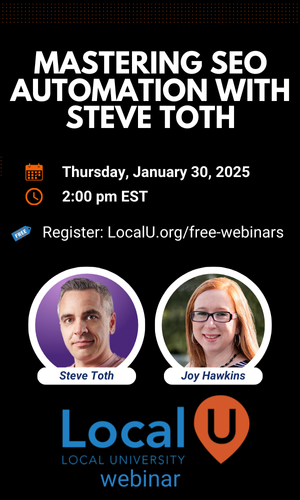djbaxter
Administrator
- Joined
- Jun 28, 2012
- Messages
- 3,778
- Solutions
- 2
- Reaction score
- 1,877
Google's John Mueller is Asked About Links and E-A-T
by Roger Montti, Search Engine Journal
August 26, 2019
Read more...
by Roger Montti, Search Engine Journal
August 26, 2019
Google’s John Mueller was asked about the value of inbound links for establishing a website’s Expertise, Authoritativeness and Trustworthiness (E-A-T). E-A-T has been encouraged by Googlers as something web publishers should cultivate. Could links be a way to demonstrate to Google that a site is expert, authoritative and trustworthy? ....
There are two problems with E-A-T authorship signals.
The first point exposes how open to manipulation on-page author credibility signals are.
- It is easy to invent that an author is an expert (such as a doctor).
- There are no patents or research papers that specifically outline an algorithm that searches for on-page authentication of the authority and expertise of an article author.
The second point shows there is close to zero likelihood that such a ranking factor exists because no university or search engine has undertake to study such an unreliable on-page ranking factor as on-page ranking credentials.
Here is the question:
It’s a reasonable question. If on-page factors are unreliable, that must point to off-page factors such as links or mentions as factors that could vouch for a web page’s expertise, authoritativeness and trustworthiness.“With E-A-T, how much value do external links carry? Surely providing that you’re an expert on page is not sufficient.
What else matters? Mentions or external links from relevant sites?”
Links have traditionally filled that role in Google’s algorithm.
Google’s John Mueller answered:
There’s no need to read between the lines. It means that John declines to answer the question. He didn’t say yes and he didn’t say no. He refused to answer the question. ....“We don’t have any explicit information with regards to what you need to do there.”
John continued his answer, providing useful information that confirms that seemed to confirm that SEO practices such as on-page author signals are not direct ranking factors.
This is what John Mueller said:
“A lot of this comes from the Google Raters Guidelines which are not direct search results or search ranking factors.”
"But rather this is what we give folks when they evaluate the quality of our search results.”
That’s an explanation of how the concept of E-A-T is specific to rating search results but is not related to the search results themselves or search ranking factors.
Read more...




